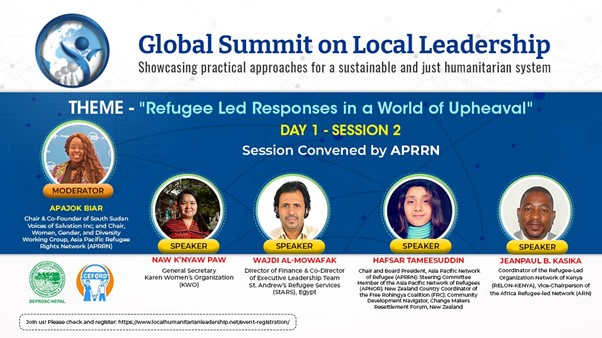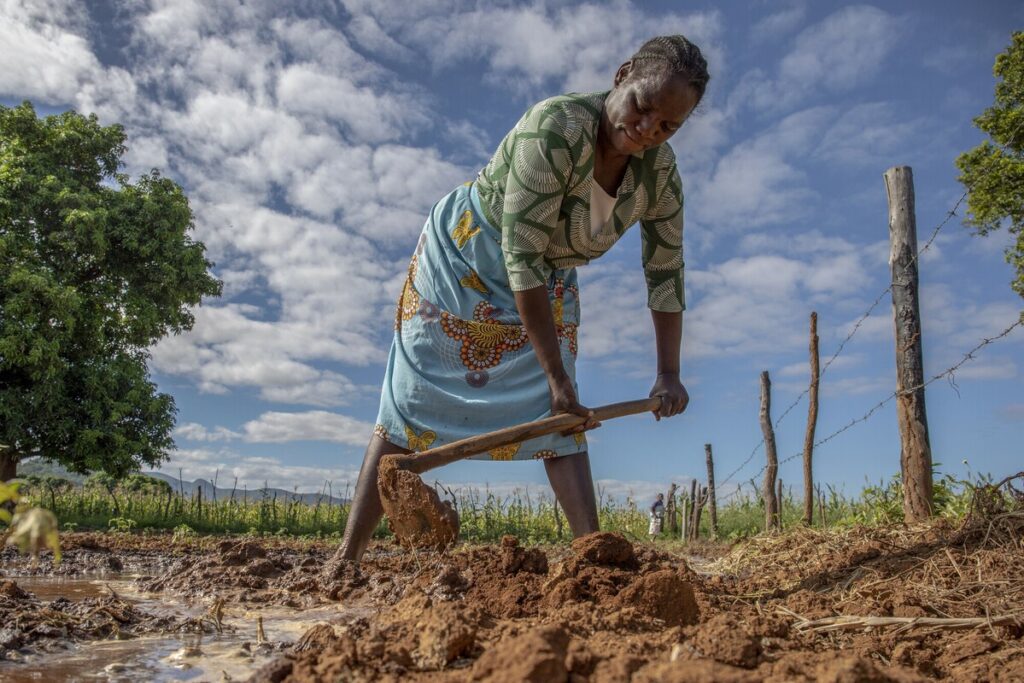
September 13, 2022
Nicola Nixon (right) and Tamara Failor (centre) from The Asia Foundation and Rebecca Calder (left), from Kore Global, introduce some ideas for making cities more inclusive in Southeast Asia. In the shadow of Covid-19, rapid urbanization is exacerbating existing inequalities and creating new ones that dramatically reduce the quality of life of people who are marginalized. Three examples: Persons with
Read more >>

Locked out. What do local leaders say about reforming the humanitarian system?
September 8, 2022
Oxfam’s Amy Croome reports back on a very different kind of localization discussion What happens when you bring together local activists and organisations to discuss how to reform the humanitarian system? I recently found out, attending a conference, where more than 85% of the speakers and moderators were from national and local organisations (compared to not even 10% at the
Read more >>

Who are ‘we’? Seeking African solutions to crises and funding gaps
August 2, 2022
Guest post by Eyokia Donna Juliet At the recent AU Humanitarian Summit, finding African solutions to African problems was an important theme. What will it take to walk the talk? In Ethiopia, Kenya, and Somalia now, it’s likely that a person is dying of hunger every 48 seconds. How many years of neglect, denial, and short-sighted decisions by policy makers
Read more >>

Red Tape, Risk and Decolonization: how can the Aid Sector square the circle?
July 19, 2022
When discussing a bunch of Good Things in the aid sector – decolonization, adaptive management, thinking and working politically etc, a common complaint is that the procedures of the aid bureaucracy frustrate a lot of good intentions. On decolonization, the main culprit is seen as ‘compliance’ – a set of procedures to ensure that those receiving the money do not
Read more >>

Africa is so rich in farmland – so why is it still hungry?
July 13, 2022
Guest post from Oxfam’s Anthony Kamande and Dailes Judge, ahead of this week’s African Union meeting It’s been more than two months since it rained in Nakuru County, Kenya, and Jane’s bean crop is long gone. Her only hope on her small plot of 0.8 hectares is the maize crop – but it will also be gone if it doesn’t
Read more >>

Why we need to build a larger us
July 12, 2022
Alex Evans summarizes a new report with five questions for change-makers How big is our idea of ‘us’? Are our family and friends part of ‘us’? Of course. Our immediate communities? Sure. But what about beyond that? When we meet a homeless person, are they part of ‘us’? Or do we consign them to being Other, part of a ‘them’?
Read more >>
Can INGOs really separate power from money?
June 29, 2022
Oxfam’s Amy Croome explores a tricky issue for aid organizations like Oxfam At the Grand Bargain Meeting this week, signatories will reflect on the role of the intermediary, which has been the focus of a political-level multi stakeholder caucus, building on the Humanitarian Advisory Group’s research. Is Oxfam ‘just’ a donor? Localization advocates have been pushing for years for humanitarian
Read more >>
“We have already spent everything we had in our own wallets”: How international aid is failing Ukrainian responders – and what to do about it
June 22, 2022
Abby Stoddard, Paul Harvey and Tonia Thomas present new research from Humanitarian Outcomes, supported by the UK Humanitarian Innovation Hub (UKHIH). Full report here. Over 100 days have passed since the Russian invasion of Ukraine sparked a massive humanitarian crisis along with an outpouring of international generosity in the form of aid contributions. So why are international organisations still sitting
Read more >>
(Re)making the case for adaptive management part 2: What to read? What Constitutes Evidence? Where are the Gaps?
June 10, 2022
Tom Aston continues yesterday’s summary of what we know about adaptive management There are many papers which make a convincing case for adaptive programming. Here’s my top 5: Escaping capability traps through problem-driven iterative adaptation (Andrews, Pritchett, and Woolcock, 2012) Getting real about politics: from thinking politically to working differently (Rocha Menocal, 2014) Development entrepreneurship: how donors and leaders can foster institutional change (Faustino and
Read more >>
(Re)making the case for adaptive management
June 9, 2022
Following yesterday’s reflection on the MEL of working in complex systems, Tom Aston provides a great overview of what to read on adaptive management. It’s a long one, so I’ve split it into two – second installment tomorrow. Christian Aid Ireland’s recent publication The Difference Learning Makes by Stephen Gray and Andy Carl made a bit of a splash. The study found that Christian
Read more >>
Promoting anti-racist narratives in development sector research
May 31, 2022
The IIED’s Natalie Lartey explores common challenges in tackling racial bias in the storytelling that underpins international development research and identifies opportunities for change. Storytelling in the aid and development sectors has for many years been criticised for perpetuating racial stereotypes and bias. In the main, this critique has focused on public affairs content from big brand charities, with less time
Read more >>
Billionaires made more in the 24 months of the pandemic than they did in 23 years. Oxfam on Davos
May 25, 2022
Max Lawson on Oxfam’s latest Davos broadside and his worries that his salary is about to get cut We are living through extraordinary times. Extraordinarily bad for the vast majority of humanity. Extraordinarily good if you are one of the richest people in the world. Normally they meet in January at Davos, but that face-to-face meeting was postponed, due to
Read more >>